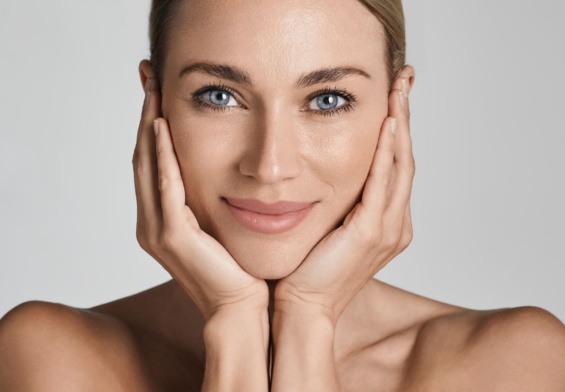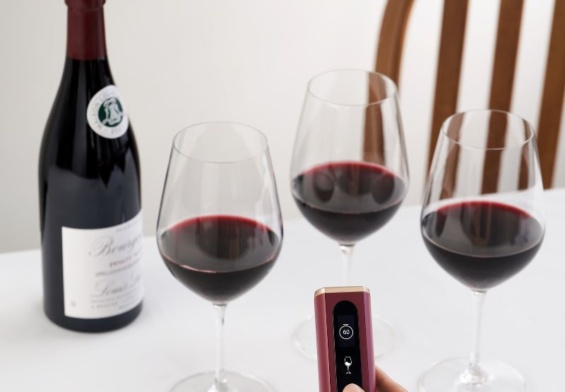By Nina Prisk, advanced aesthetics nurse prescriber and owner of Update Aesthetics Cosmetic Clinics.
Injectable aesthetic treatments such as botulinum toxin and dermal filler are more popular than ever in order to address the signs of premature ageing as well as a number of other issues. Whereas historically many people have used injectables as a sole way of achieving a flawless, smooth, plump face and lips, people now need to be made aware that injectables alone aren’t sufficient.
I like to think of the face as a canvas, and if the skin isn’t in optimum condition then it’s futile for long-lasting results. As such, it’s vital that people learn the importance of taking a more holistic 360 approach to skincare and injectables in which injectables and skincare products work simultaneously in order to support not only the look and feel of the skin, but also skin health.

Advances in both the science behind injectables as well as innovations in skincare products mean that it is no longer enough to use one or another, and there are, in fact, a huge number of benefits of integrating them both in order to go beyond simply the appearance of the skin but also to nourish it.
There a number of ways in which cosmetics can work in synergy with injectables in order to increase both the efficacy and duration of the results:
Prejuvenation
It’s helpful to think of the integration between injectables and skincare in terms of a relatively new phrase – prejuvenation. This is a preventative method that involves combining a good skincare routine with non-surgical treatments to help promote collagen production and support the skin barrier. If the skin is in optimum health then injectables will be more effective and provide longer-lasting results. I recommend products from the Skinceuticals range to my patients.
Protection
Vitamin C is an extremely important ingredient within cosmetics. As one of the most powerful antioxidants in the skin, vitamin C can help to protect against photoaging as well as having a positive impact on collagen synthesis. It also helps to decrease melanin formation, thereby reducing pigmentation. Skinceuticals C E Ferulic Vitamin C Antioxidant Serum is an effective way of delivering vitamin C to the skin in order to provide environmental protection, help to prevent free radical damage and improve the appearance of fine lines, wrinkles and loss of firmness. It also brightens the skin.
Hyaluronic Acid is a vital component of the skin and plays a key role in hydration and elasticity, as well as wound healing and anti-inflammation. However, over time the body’s natural stores of hyaluronic acid decline and so it’s important to use products that help to address this loss. You can do this by using skincare products such as moisturising creams, serums and lotions which contain Hyaluronic acid. Used as part of a home skincare regimen after dermal fillers, using topical products with hyaluronic acid can help to encourage maximum efficacy as well as extend the longevity of result.
Retinol is a formulation of vitamin A that’s applied topically to the skin. It increases the rate at which your body produces new skin cells, and so it’s an extremely effective product for increasing cell turnover. It helps to improve skin tone and reduce pigmentation and help reduce the signs of ageing. Retinol can, however, cause sensitivity and redness so it’s important to only start using it every other day to begin with, and also it’s imperative that you wear a medical grade broad-spectrum SPF in order to protect skin.
Lipid Restoration is essential for younger looking skin because as skin ages it becomes more susceptible to lipid depletion. Lipids, the skin’s natural fats, which are composed of ceramides, fatty acids, and cholesterol. When these are lost the skin’s natural barrier is compromised and premature ageing can be accelerated. Skinceuticals Triple Lipid Restore 2:4:2 is an anti aging cream formulated with a maximized concentration of lipids: 2% pure ceramides, 4% natural cholesterol, and 2% fatty acids. It helps restore skin’s external barrier and support natural self-repair, while potently nourishing aging skin for improvement in visible signs of accelerated aging.
SPF is the most effective way to protect skin against ageing. The sun’s ultraviolet rays damage the elastin in the skin, causing them to break down. In turn this causes the skin to become saggy and unable to spring back to its original shape. It’s for this reason that repeated exposure to the sun has an extremely ageing effect on skin, resulting in wrinkles and sagging. The most effective way to protect skin against ageing is to use SPF. That equates to about 90% of ageing to the face – pigmentation, wrinkles, laxity, loss of collagen. Using a medical-grade factor 50 broad spectrum SPF ensures maximum protection against UVA, UVB and infrared damage, both against burning and also against deep damage. This is the cornerstone of skin protection and health.
In light of the huge impact topical cosmetics can have on skin health it’s vital to educate people about the importance of integrating skincare and injectables. The active ingredients in cosmetic products have the ability to protect skin against damage and premature ageing, and also help to maintain optimum skin health. By using products with effective active ingredients alongside injectables it will not only improve the efficacy of injectables but also extend the duration for which they are effective.
About the expert
Nina Prisk is an advanced aesthetics nurse prescriber and owner of Update Aesthetics Cosmetic Clinics both in London’s Harley Street and in Cornwall. As a lecturer and ambassador for global industry brands, Nina is famed for her ability to enhance her patient’s features whilst also achieving a natural look. Her portfolio of treatments is huge and she offers a tailored bespoke approach to all of her patients with the goal of making them feel the best and most confident version of themselves. She advocates the importance of a multi-faceted skincare regime which incorporates both injectables and skincare products.


